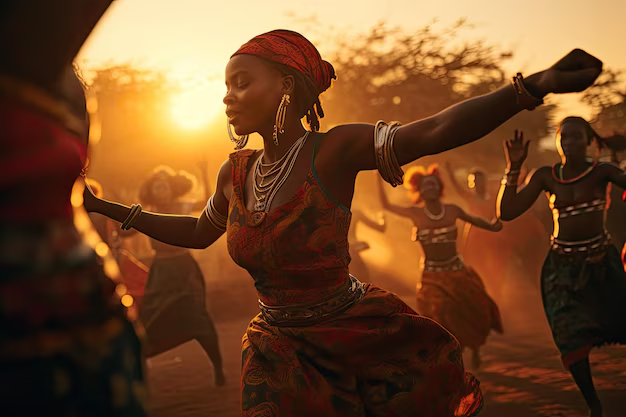Black culture is a tapestry woven from diverse experiences, histories, and traditions that have shaped communities across the globe. From Africa to the Americas, black traditions reflect resilience, creativity, and an enduring sense of unity. These traditions not only preserve cultural identity but also inspire generations to embrace their roots and build vibrant futures.
A Legacy of Strength and Resilience
Black culture traditions are deeply rooted in the strength and resilience of the African diaspora. Forced displacement during the transatlantic slave trade brought people from various African regions to the Americas. Despite efforts to strip away their identities, enslaved Africans retained key elements of their heritage, passing down oral histories, music, dance, and spirituality. The ability to adapt and maintain cultural practices under unimaginable circumstances is a testament to the indomitable spirit of black communities.
Music as a Cultural Anchor
Few aspects of black culture are as influential or globally recognized as music. Genres like gospel, jazz, blues, hip-hop, and reggae have emerged from black communities, offering not just entertainment, but also a form of expression, resistance, and healing. From the spirituals sung in the fields during slavery to the powerful messages of hip-hop today, black music has always been a vehicle for storytelling and a celebration of cultural pride.
- Jazz and Blues: Born in the southern United States, jazz and blues became outlets for emotional expression, touching on themes of love, hardship, and joy. Legends like Louis Armstrong and Bessie Smith left lasting legacies, with their music still resonating in modern-day genres.
- Hip-Hop and Rap: In the 1970s, hip-hop emerged from the Bronx as an artistic response to economic and social struggles. It has since become a global phenomenon, with artists like Tupac Shakur, Nas, and Kendrick Lamar using their platforms to challenge systemic issues and inspire positive change.
Family and Community: The Heart of Tradition
Family and community are central to black culture traditions, playing a pivotal role in passing down values, customs, and rituals. Family gatherings, such as reunions and holiday celebrations, are moments to reconnect, honor ancestors, and reinforce cultural identity. These events are often infused with storytelling, music, and food, fostering a sense of belonging and continuity.
In many black communities, elders are revered as the keepers of history and wisdom. They serve as links between the past and the present, sharing stories that provide younger generations with a sense of pride in their heritage.
Much like the Arabic Culture and Traditions, where oral storytelling is a vital component of preserving history, black communities place immense value on these personal narratives, ensuring that the lessons and legacies of the past endure.
Food: A Flavorful Tradition
Black culinary traditions reflect the rich diversity of the African diaspora. From soul food in the southern United States to jerk chicken in Jamaica, these dishes are not only flavorful but also carry deep cultural significance. For many, food represents survival, creativity, and the blending of African, Caribbean, and American influences.
- Soul Food: Known for its hearty, comforting flavors, soul food includes dishes like fried chicken, collard greens, cornbread, and sweet potato pie. These recipes often originated from limited resources, with enslaved Africans using available ingredients to create nourishing meals.
- Caribbean Cuisine: In the Caribbean, African culinary practices fused with indigenous, European, and Asian influences to create vibrant dishes such as ackee and saltfish, plantains, and curried goat. These meals symbolize the resilience and adaptability of the black diaspora.
Spirituality and Worship
Religion and spirituality play profound roles in black culture traditions. Whether through Christianity, Islam, or African traditional religions, black communities have maintained spiritual practices that promote healing, empowerment, and communal well-being.
- The Black Church: The black church has historically been a pillar of support and resistance in African American communities. During the Civil Rights Movement, churches served as meeting points for activists and leaders like Martin Luther King Jr., providing spiritual and moral guidance in the fight for justice.
- African Traditional Religions: Practices such as Yoruba, Vodou, and Santería remain integral to black spirituality, offering pathways to connect with ancestors and deities. These belief systems emphasize the importance of community, the environment, and the balance between the physical and spiritual realms.
This focus on spirituality is also present in other cultures, such as Canada’s Culture and Traditions, where indigenous practices often include ceremonies that connect communities to the natural world and their spiritual heritage.
Rites of Passage: Honoring Growth and Transformation
Rites of passage are important in black culture traditions, marking key stages of personal development. These ceremonies are often rooted in African customs, providing individuals with a sense of purpose and belonging as they transition through life.
- Coming of Age Ceremonies: In many African cultures, coming-of-age rituals symbolize the transition from childhood to adulthood. These ceremonies often include community involvement, traditional music, and the imparting of wisdom from elders.
- Funeral Rites: Funerals in black communities are seen not only as a time of mourning but also as a celebration of life. Many African American funerals involve joyous music, dancing, and eulogies that honor the deceased’s legacy, reflecting a belief in the continuation of the soul.
Fashion and Self-Expression
Fashion has always been a powerful form of self-expression within black culture. From traditional African garments to modern streetwear, clothing allows individuals to showcase their cultural pride and creativity.
- African Prints and Fabrics: Fabrics like kente and Ankara are iconic symbols of African heritage, often worn during special occasions or celebrations. These vibrant patterns are rich in symbolism, representing everything from royalty to spirituality.
- Contemporary Fashion: In the U.S., black communities have also led global fashion trends. From the zoot suits of the Harlem Renaissance to the bold streetwear of today, black fashion continues to influence the world stage.
Celebrations and Festivals
Celebrations in black culture provide opportunities for communal joy and reflection. Festivals like Juneteenth and Kwanzaa allow black communities to come together, commemorate history, and celebrate achievements.
- Juneteenth: Observed on June 19th, Juneteenth marks the emancipation of enslaved African Americans in the United States. It is a day of celebration, education, and reflection on both the progress made and the work still needed for racial equality.
- Kwanzaa: Created in 1966, Kwanzaa is a seven-day celebration of African heritage, focusing on the principles of unity, self-determination, collective work, and creativity. Each day of Kwanzaa involves lighting a candle to represent these values, promoting a deeper connection to African roots.
FAQs About Black Culture Traditions
What are the key traditions in black culture?
Key traditions in black culture include music (such as gospel, jazz, and hip-hop), family reunions, spiritual practices, rites of passage, culinary traditions like soul food, and celebrations like Juneteenth and Kwanzaa.
How have black culture traditions influenced global culture?
Black culture has significantly influenced global music, fashion, art, and language. Genres like jazz, blues, and hip-hop are now staples worldwide, and black fashion trends continue to shape modern aesthetics.
Why is music so important in black culture?
Music serves as a powerful tool for expression, storytelling, and healing in black culture. From spirituals sung during slavery to modern-day hip-hop, music reflects both the struggles and triumphs of black communities.
What is the significance of family in black culture?
Family is a cornerstone of black culture, providing emotional support, cultural continuity, and a sense of identity. Family reunions and gatherings play a vital role in preserving traditions and strengthening community bonds.
Conclusion
Black culture traditions are a powerful testament to the resilience, creativity, and unity of the African diaspora. Rooted in centuries of history, they continue to shape not only the identities of black communities but also the wider global culture. Whether through music, family, food, spirituality, or fashion, these traditions provide a sense of belonging and continuity, connecting the past with the present and future.



